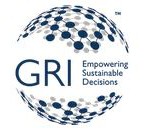
“For business to maximize its contribution to sustainable development, it must put efforts to advance respect for human rights at the heart of the people part of sustainable development,” said John G. Ruggie, former UN Special Representative on Business & Human Rights, in his keynote speech at the UN Forum on Business and Human Rights last month. Latest research from GRI and Centro Vincular-PUCV has found the current state of reporting on human rights impacts in the mining, energy and financial sectors could be improved, but encouragingly, there are signs of progress. The study, Shining a light on human rights: corporate human rights performance disclosure in the mining, energy and financial sectors, is launched at a timely moment following this year’s Forum on Business and Human Rights in Geneva – the world’s largest annual gathering on business and human rights.
Importance of monitoring and communicating human rights impacts
GRI and Centro Vincular-PUCV (an institution within the Business and Economics School at the Pontifical Catholic University of Valparaíso, Chile), conducted a study of 464 sustainability reports published in the GRI Sustainability Disclosure Database in 2015 to analyze how companies in the mining, energy and financial services sectors are reporting on their human rights performances. The main focus was on:
- How transparent are companies on their commitment to human rights?
- What human rights topics are companies reporting?
- How are companies managing human rights in their supply chain and human rights-related grievances?
In the field of business and human rights, the wide and complex geographic reach of the private sector means that it does not matter if a company is headquartered in low-risk human rights zones or not – all regions and sectors are subject to be held accountable for their human rights impacts and to do so, transparency is key.“Transparency and reporting play an important role in a company’s success,” explained GRI’s Deputy Chief Executive, Teresa Fogelberg. “Reporting contributes to companies’ awareness and understanding of their impacts and what they can do to minimize the negative while maximizing the positive. This information is also increasingly being requested by key stakeholders.”
Mixed results from the study
Despite 87% of the 30 companies involved in the qualtitative study identifying human rights as a material issue, just 57% have human rights policies in place. The quantitative study (of 464 reports), also revealed low reporting levels for specific disclosures on human rights across all three sectors (29%, 34% and 35% for financial, energy and mining respectively), and just 30% of companies report on human rights impacts in their supply chains.There were some positive results, however: from the qualitative study, 82% of the mining sector and 76% of the energy sector report on health and safety topics.What is clear from the findings presented below is that the journey towards full transparency is long, and one that many companies are only just beginning.Fig. 1. Main findings from the quantitative analysis of 464 sustainability reports
Fig. 2. Main findings from the qualitative analysis of 30 sustainability reports

Recommendations for organizations emerging from the study
Following the analysis, GRI and Centro Vincular-PUCV detailed a number of recommendations to help organizations improve the management of human rights in their operations and value chains, and consequently improve disclosures and transparency on relevant human rights topics. These are expanded further in the report and include:
- Due diligence is the starting point
- Show the local context in which you operate
- Show concrete progress on the management of impacts over time
- Find a balance between quantitative and qualitative information
- Be clear and ensure the completeness of information presented
- Address direct and indirect impacts
Reporting on human rights with GRI



